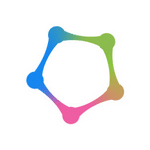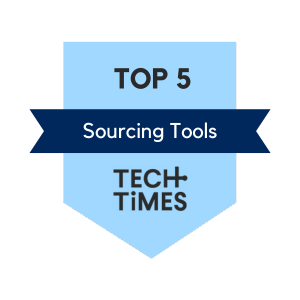Have you ever tried to find the right piece of a puzzle to make the picture finished? Searching for the right person for the job feels very alike. Many HR managers would agree that, over the years, this task has become more complex and more straightforward at the same time. On the one hand, using special programs allows one to reach a much bigger pool of candidates. However, such a great variety of candidates requires more time, but it is also where tech innovations become helpful. How has recruitment evolved? In what way can recruitment technology assist recruiters in selecting and engaging with outstanding talents? Let’s figure it out!
Talent Acquisition Transformation
Previously, HR professionals managed paper resumes and conducted in-person interviews. This approach was time-consuming, stressful for applicants, and often resulted in delayed feedback. Today, these procedures have largely moved online. This change has sped up the process and expanded the potential candidate pool globally. Moreover, as businesses have adapted to digital transformation, the methods for reaching and evaluating candidates have diversified. Think of social media recruitment or virtual interviews. Candidates can now demonstrate their skills through digital portfolios or pre-recorded video interviews.
The legal side of talent acquisition has also become more transparent. Now, candidates can get acquainted with all the employment terms before they accept the offer and, therefore, make the choice that best fits their expectations. Moreover, recruiters and candidates can use the contract for work template available online, adjust it to the parties’ needs, and sign it online. It simplifies and speeds up the administrative side of hiring, saving valuable time for both parties involved.
How Can Recruitment Technology Help with Talent Acquisition?
Technology acts as a bridge, connecting companies and suitable candidates more efficiently. For instance, artificial intelligence can process applications faster than any human might. AI tools can sift through thousands of applications in record time, allowing managers to focus on high-potential candidates more effectively and provide responses quickly.
Furthermore, online platforms give access to a broader pool of talent across different regions, which reduces the need to limit choices to local candidates. In such a way, any company can hire individuals who can offer unique perspectives and skills even if they are in a different country or on another continent. Consequently, an abundance of software for remote work allows the onboarding process to be organized effectively.
Also, technologies like chatbots can help recruiters when talking to job seekers at the start. These tools handle common questions, set up interviews, and keep candidates informed about what’s happening with their applications. By automating these tasks, HR teams can spend more time personally connecting with potential employees.
A voice cloner can also be integrated to create personalized voice responses, improving the candidate experience with a more human-like touch.
For example, chatbots quickly reply to questions after posting a job, so every candidate gets an answer without delay. This improves the applicant experience and shows the company is organized and responsive. Plus, predictive analytics can look at trends to help HR plan for future hiring needs, allowing them to prepare and manage talent pools ahead of time.
Helpful Programs in Talent Acquisition
Several innovations have changed recruitment in the global market. Here are some key ones:
- Applicant tracking systems (ATS) assist in organizing the hiring process from start to finish. It simplifies posting jobs and tracking applications. This software can also link with job boards, making sharing listings more efficient. For example, in a tech firm, a recruiter can keep tabs on all candidates, ensuring promising ones are noticed. A startup might use an ATS to quickly sort applications by experience level, making finding top talent for software development roles easier.
- Video interview platforms: Tools like Zoom and Microsoft Teams allow interviews to be conducted from any location. This flexibility reduces travel costs and accommodates both hiring managers and candidates. A manager can schedule multiple interviews daily without logistical headaches, speeding up meetings across time zones. An HR manager might use these platforms to interview candidates from overseas, significantly shortening the time it takes to fill open positions.
- AI-powered screening programs: Artificial intelligence helps quickly sort resumes to find top candidates based on specific criteria. This means a human resources team can look for the needed skills, saving time on each application. It streamlines the process to focus more on qualified individuals. For instance, a company hiring engineers might use AI tools to instantly flag resumes that mention specific programming languages, ensuring they’re reviewed quickly.
- Social media recruitment: Networks like LinkedIn and Instagram help find new hires. They allow HR professionals to reach a large audience through job posts and engagement with potential candidates. A specialist might use LinkedIn to reach out to individuals who fit well with job requirements, even if they aren’t actively looking for work. For example, a marketing firm might post engaging content on Instagram to attract creative professionals drawn to the company culture.
- Data analytics tools: Companies use data insights to examine past hiring patterns and trends. This information effectively guides future hiring strategies. For example, firms can identify which job boards yield the best hires and focus their efforts there. Analyzing data can also help anticipate future staffing needs and plan resources efficiently. An organization might study analytics to discover peak hiring times in their industry, allowing them to optimize recruitment efforts when talent availability is highest.
Conclusion
Transitioning into a digital-driven environment has redefined human resources. Where once paper-based processes predominated, now an array of tech utilities aid in simplifying the hiring process; embracing these new tools makes the journey more efficient for managers and more rewarding for the candidate. By integrating innovative recruitment technology and applying fresh approaches to communication with potential candidates, you retain an edge in cultivating a diverse and skilled team ready to meet future challenges. Dream jobs and dream companies exist, and recruiters’ task is to make the match happen.
About Talentprise
Talentprise is a cutting-edge talent acquisition platform that leverages AI-powered matching technology to connect employers with a global pool of highly skilled candidates. You can find the right talent quickly and efficiently by streamlining the hiring process. Unlock the future of recruitment—sign up today and discover top-tier talent effortlessly!

Editorial Team
Our team is fueled by a passion for crafting valuable content that enriches the experiences of our users, customers, and visitors. We meticulously select meaningful and unbiased topics ranging from tips and guides to challenges and the latest in technology, trends, and job market insights. All curated with care and affection!








